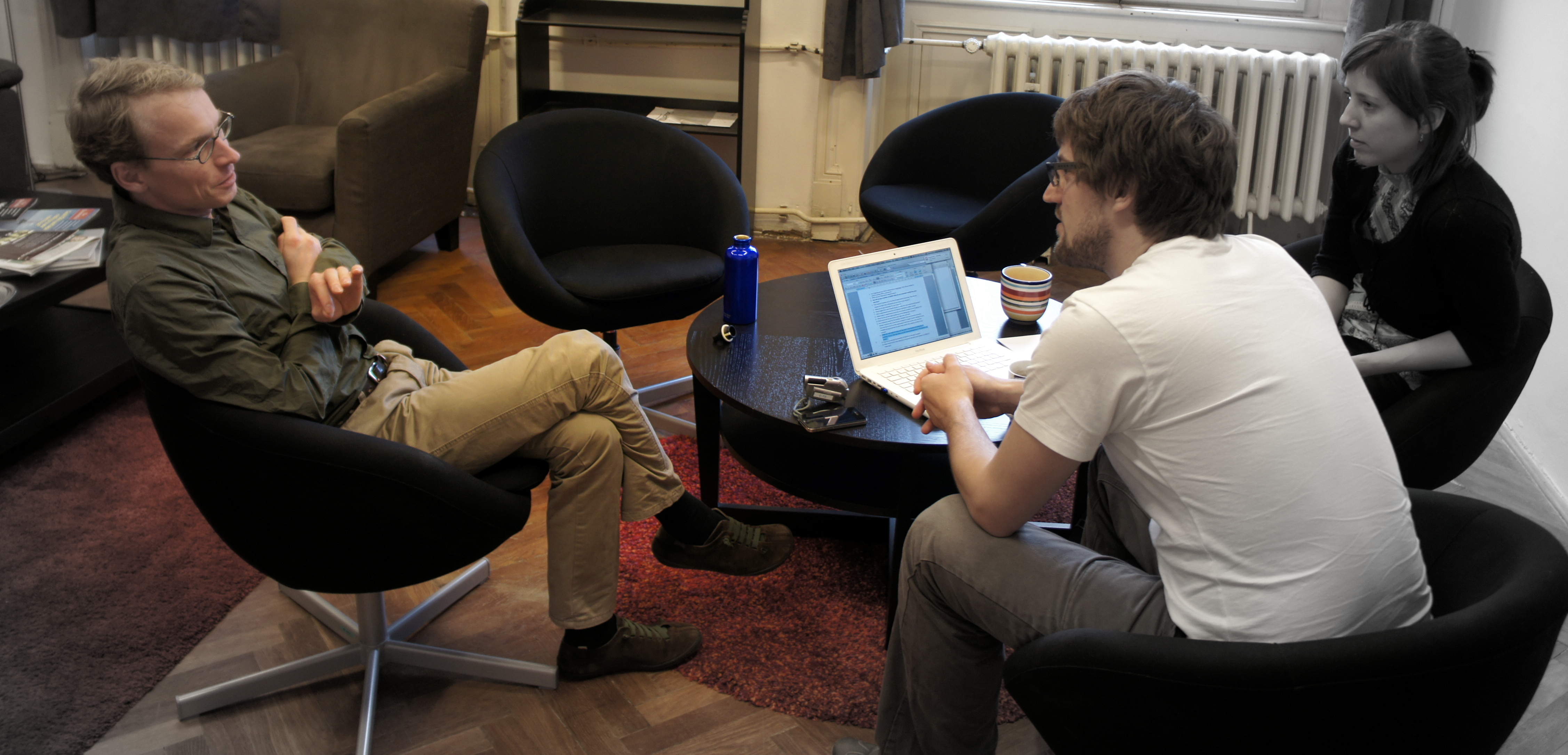During Professor Engelmann’s visit to CERGE-EI, he sat down to speak with two PhD students for a brief interview. They discussed the direction of experimental economics, tips for getting a paper published, and the inspiration for research. Have a look at their interesting discussion:
On your CV we saw that you originally did a Masters in mathematics. Why did you decide to switch to economics?
I wanted to do something with somewhat more direct meaning towards life. Math was nice, but quite empty in some ways. Originally I planned to do my PhD in psychology. But I realized that the economists were a bit more open to introducing psychological ideas into experiments than psychologists were open to, for example, game theoretical modeling. If you do research with both psychology and economics, it seems easier to do it within economics, at least if you want to do it a bit more formally.
How do you get inspiration for your research?
There are three ways. One, I see some kind of theoretical or empirical paper, and I think ‘that’s worth testing’. Two, I see other experiments where I don’t quite trust results, and I want to do robustness checks. As for the third thing: I like to talk to people who don’t do experiments, because they often have questions that they’d like to test experimentally. If you talk to people who don’t do experiments, you are usually exposed to unusual questions, and you have to think about relatively innovative experiment designs.
Can you tell us what you think are the economic topics today which provide for ‘low hanging fruits’?
I think it’s hard to find ‘low hanging fruits’, because there are so many people doing experiments now. It is very attractive to start doing experiments, because it is a bit more entertaining than theoretical or empirical stuff. You can avoid some of the problems there. And you can be sure to get some kind of results. So I think that everything that looks like low hanging fruit is being constantly picked by these armies of experimentalists. Of course there are always some obvious questions that are not explored.
Continue reading CERGE-EI Interviews Professor Dirk Engelmann
